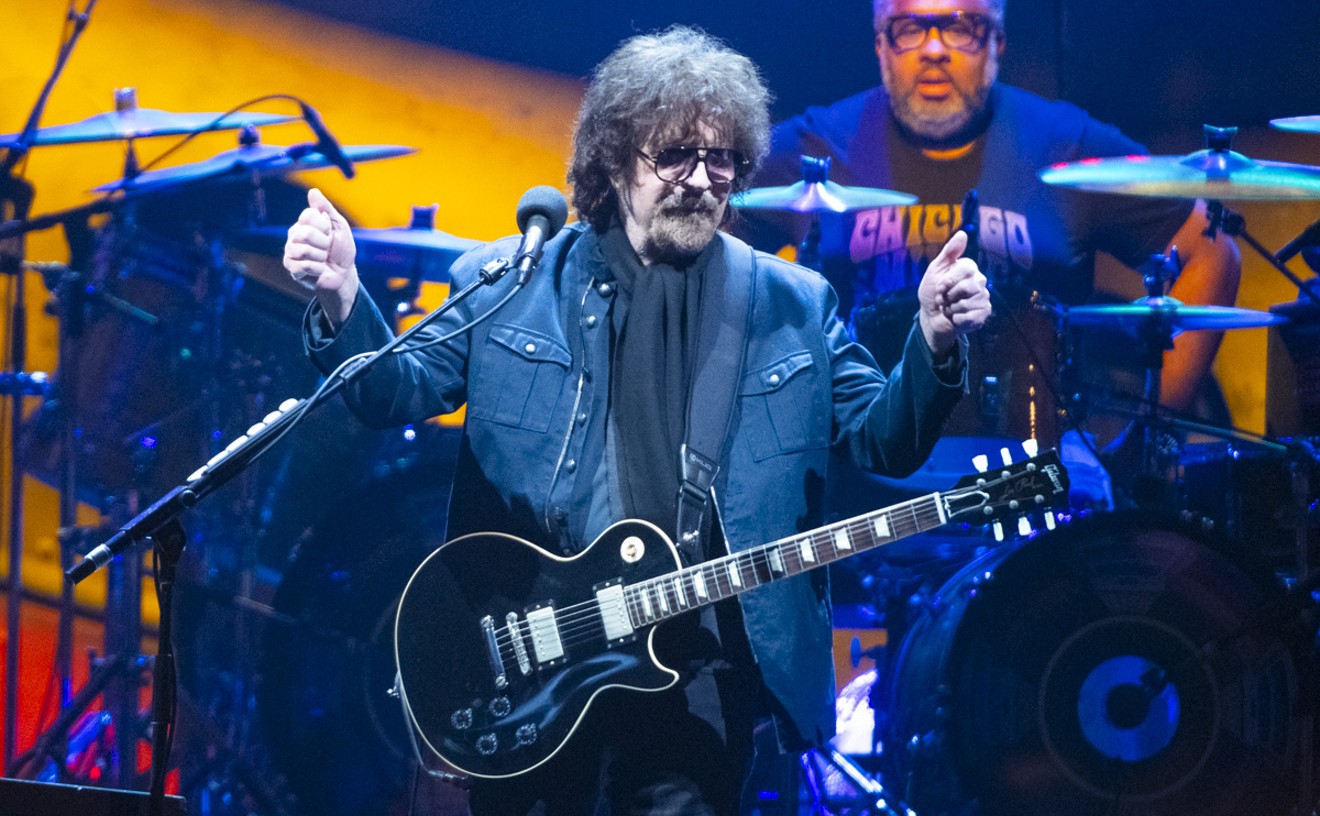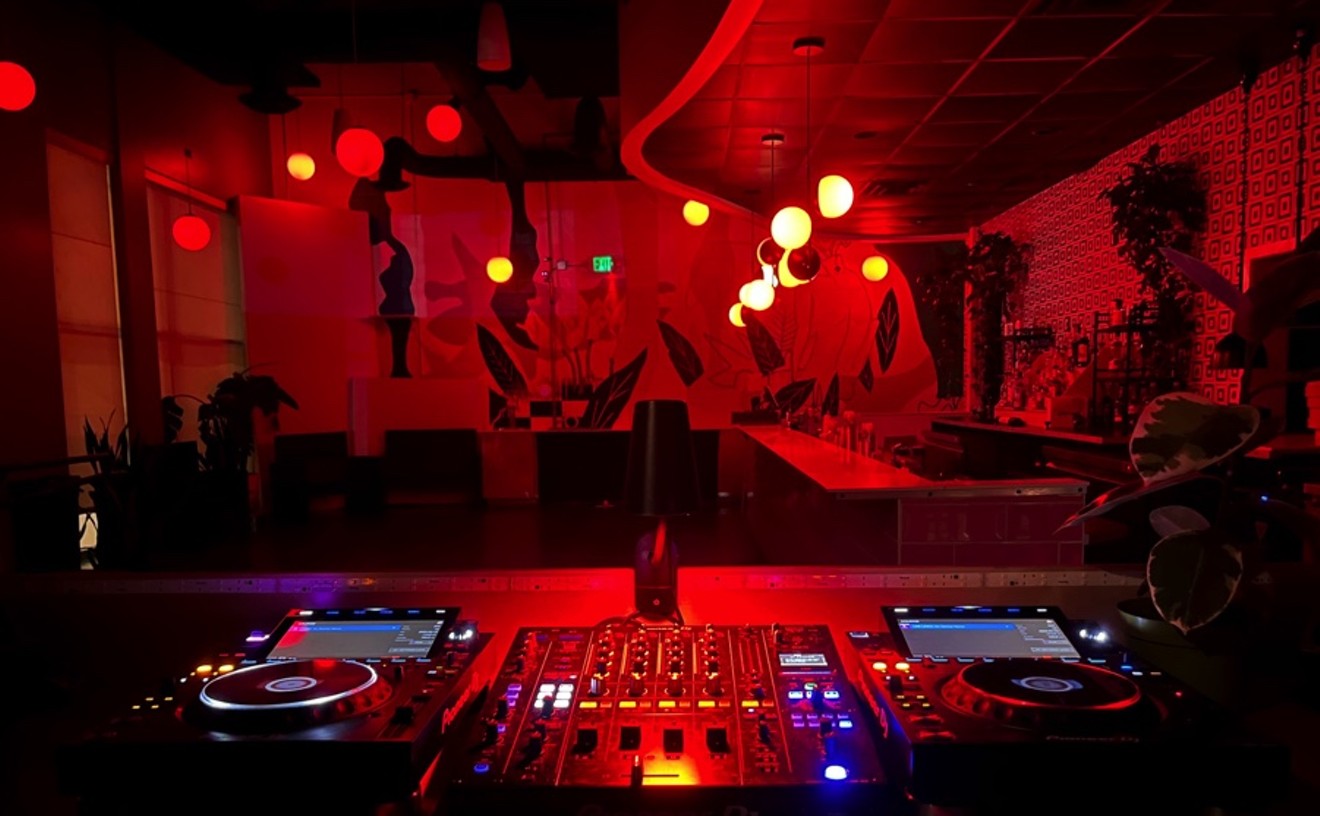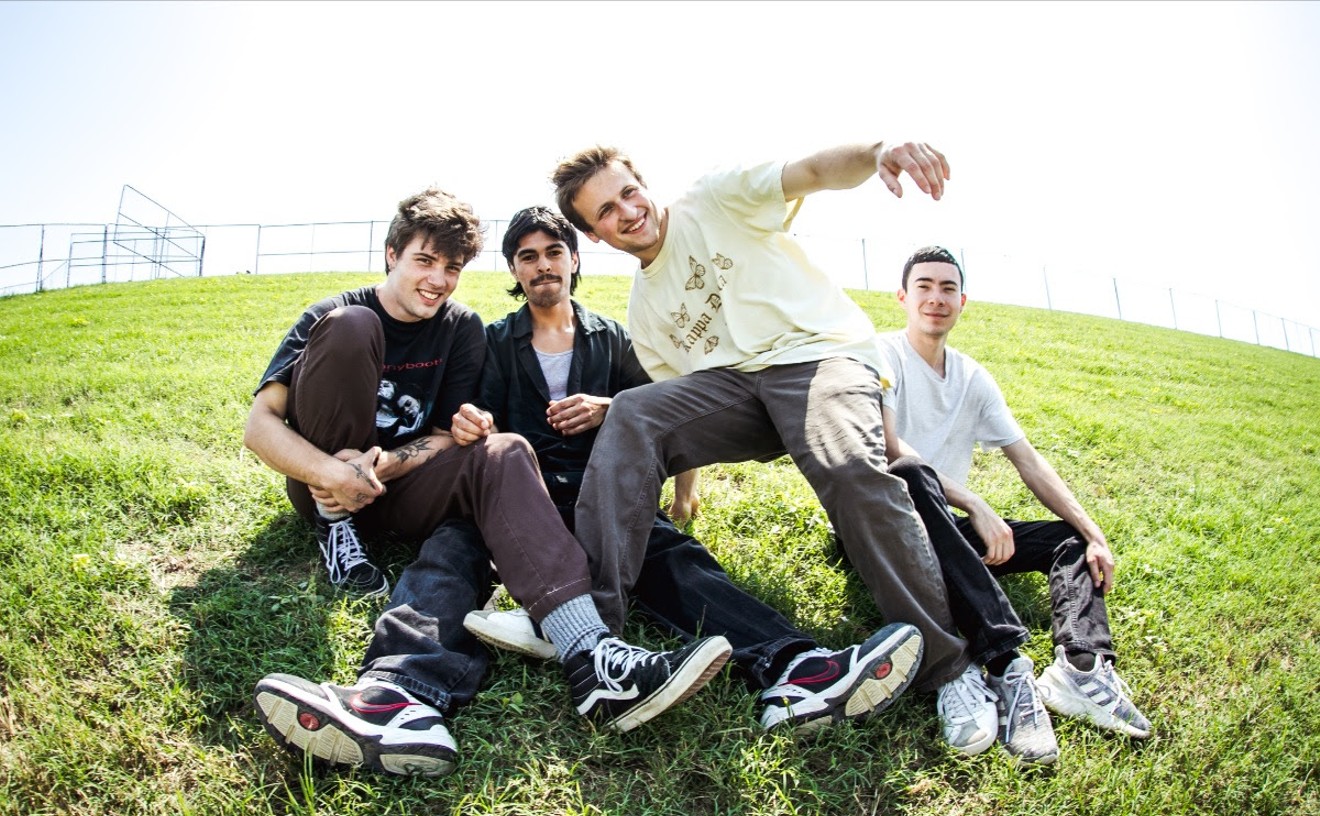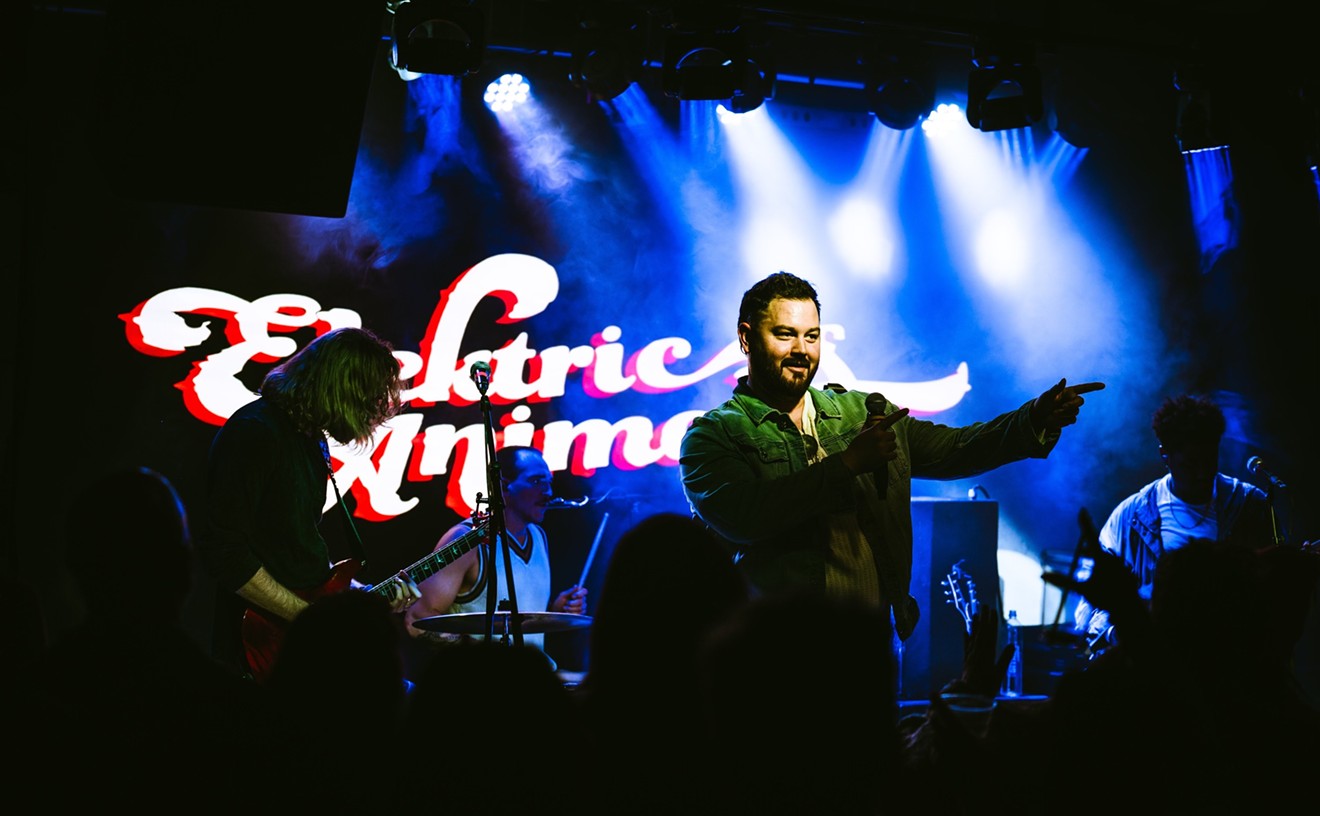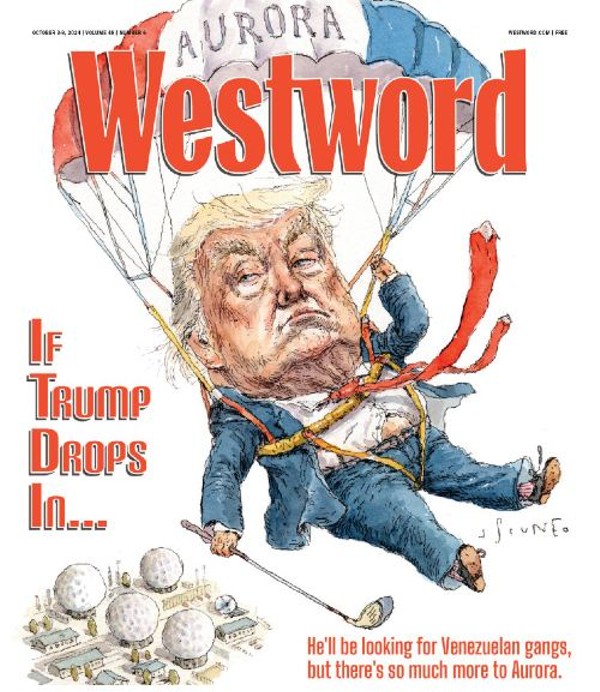Right around now, as the fishing season begins on the banks of Accra, Ghana, there is a chance to hear the traditional a cappella renditions of Gãdangmé fishermen. Their songs move across the water — perhaps by conch, if the myth holds true — and fill Okaidja Afroso with inspiration, as reflected on his debut album, Jaku Mumor (which means "ancestral spirit" in the Gãdangmé language). The Ghanaian musician will showcase his new music at the Newman Center for the Performing Arts on Wednesday, September 27.
Afroso grew up in Kokrobite, a small fishing village west of Accra, where he was immersed in the cultural traditions of its fisherman and their music. He looks back fondly on those days, singing and dancing to the dynamic harmonies laced with Indigenous themes. The music, Afroso says, can be a means of communication, in which ancestors have packaged messages in song to be unwrapped by future generations. But he is worried that the tradition is being lost.
“I feel like that style of music is fading away, because in Accra, the capital, there's a lot of changes happening," Afroso explains. "I wanted to write a project that brings me back to preserve our culture so that generations to come, hopefully, would see it and want to do the same."
To do so, Afroso traveled back to Ghana from his current home in Portland, Oregon, to record Jaku Mumor with the Gãdangmé fisherman. On the album, he melds the traditional and contemporary, combining new harmonies and lyrics with ancestral rhythms. On “Gidi Gidi,” the opening track, Afroso’s voice sails over a buoyant finger-plucked guitar and a pattering percussion.
Afroso’s background is in dance; at age nineteen, he performed as a principal dancer with the Ghana Dance Ensemble at the University of Ghana. All of his original music stems from that foundation, he says: “I am a dancer first. When I play percussion, when I play the guitar, I am thinking of that as a dancer.”
Dance also brought Afroso to the U.S. After seeing him dance with the ensemble, Obo Addy, who was spearheading the exposure of Ghanian drum and dance in the Pacific Northwest, invited Afroso to join his own group, Okoprong. Afroso moved to Portland in 1999 and danced with Addy's group for five years before leaving the stage for a period to teach about the drumming and dancing traditions. Eventually, he had the desire to return to performance with his own style, but education remains a large part of his work.
“Those of us who perform, like myself, we come to places like America and Europe promoting Ghanaian culture, sort of like ambassadors of the country,” Afroso says. “I've been to a lot of places where the audience of kids don't even know where Ghana is, or still refer to Africa as a country.”
Afroso makes use of multimedia in his performances to accomplish this outreach. The approach allows him to highlight his concerns with his music: He fears that the traditional language, Ga, of the Gãdangmé people, who are an ethnolinguistic group of the Gas and the Adangbes within the Greater Accra Plains, is disappearing. Afroso is also worried about the effects that global warming will have on the Indigenous fishing practices from his home, whose music he looks back on fondly.
On the song “Nshor Nba,” he sings of “earth warming, billowing ocean,” as well as “the turbulent ocean upon us,” in a call-and-response style along with a chorus of fishermen. The program for his concert includes a companion documentary with footage from Ghana, showing the fisherman found in his music at work in the coastal town of Teshie.
With an established career in the performing arts within the United States, Afroso hopes to return to Ghana at some point in the future, traveling across the globe for his educational outreach. Before that, he plans to release his next project in 2025.
Okaidja Afroso, 7:30 p.m. Wednesday, September 27, Gates Concert Hall, Newman Center for the Performing Arts, 2344 East Iliff Avenue. Tickets, $26 to $56, are available on the Newman Center website.

Audio By Carbonatix
[
{
"name": "Air - MediumRectangle - Inline Content - Mobile Display Size",
"component": "12017618",
"insertPoint": "2",
"requiredCountToDisplay": "2",
"watchElement": ".fdn-content-body",
"astAdList": [
{
"adType": "rectangle",
"displayTargets": "mobile"
}
]
},{
"name": "Editor Picks",
"component": "17242653",
"insertPoint": "4",
"requiredCountToDisplay": "1",
"watchElement": ".fdn-content-body",
"astAdList": [
{
"adType": "rectangleLeft",
"displayTargets": "desktop|tablet"
},{
"adType": "rectangleRight",
"displayTargets": "desktop|tablet|mobile"
}
]
},{
"name": "Inline Links",
"component": "18838239",
"insertPoint": "8th",
"startingPoint": 8,
"requiredCountToDisplay": "7",
"maxInsertions": 25
},{
"name": "Air - MediumRectangle - Combo - Inline Content",
"component": "17261320",
"insertPoint": "8th",
"startingPoint": 8,
"requiredCountToDisplay": "7",
"maxInsertions": 25,
"watchElement": ".fdn-content-body",
"astAdList": [
{
"adType": "rectangleLeft",
"displayTargets": "desktop|tablet"
},{
"adType": "rectangleRight",
"displayTargets": "desktop|tablet|mobile"
}
]
},{
"name": "Inline Links",
"component": "18838239",
"insertPoint": "8th",
"startingPoint": 12,
"requiredCountToDisplay": "11",
"maxInsertions": 25
},{
"name": "Air - Leaderboard Tower - Combo - Inline Content",
"component": "17261321",
"insertPoint": "8th",
"startingPoint": 12,
"requiredCountToDisplay": "11",
"maxInsertions": 25,
"watchElement": ".fdn-content-body",
"astAdList": [
{
"adType": "leaderboardInlineContent",
"displayTargets": "desktop|tablet"
},{
"adType": "tower",
"displayTargets": "mobile"
}
]
}
]





